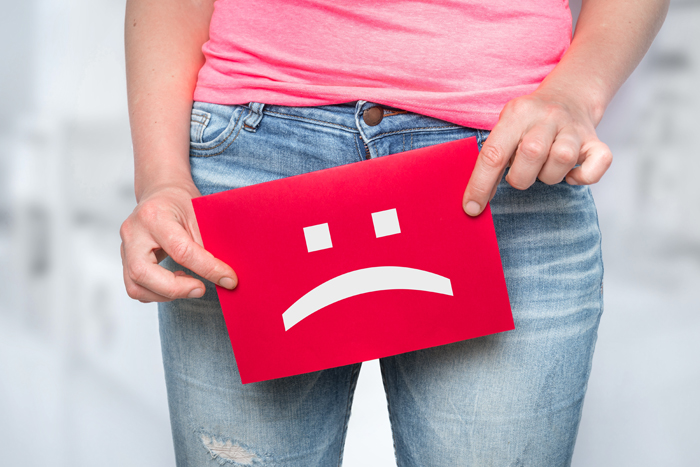Urinary incontinence Treatment in Alwarpet, Chennai
Urinary incontinence is the loss of control over your bladder movements. This results in urine leaking out when not intended or by accident. Incontinence affects women twice as much as it affects men. Urinary incontinence is not a natural part of the aging process meaning that it does not compulsorily affect everyone, but it is an extremely common condition. It is also a treatable condition and hence, does not offer too much cause for worry.

What is UI?
Urinary incontinence is a condition characterized by the loss of control over your bladder and subsequently, the leakage of urine. Kidneys produce the urine and it is then deposited in the bladder. The muscles of the bladder contract when you urinate. As soon as the bladder muscles contract, urine is forced out of your bladder through a tube called the ‘Urethra.’ When there is a lack of control over the contractions of the bladder muscles, it leads to urinary incontinence.
Types of Urinary Incontinence:
The different types of urinary incontinence are:
- Stress incontinence. This is the most prevalent type of incontinence. This happens when there is difficulty or pressure on the bladder. With stress incontinence, everyday activities that use the pelvic floor muscles, like coughing, sneezing, or laughing, can be the reason you leak urine.
- Urge incontinence. With urge incontinence, urine leakage happens typically after an intense and immediate urge to urinate but before you can get to a bathroom.
- There are many women with urinary incontinence who have both stress and urge incontinence. This is termed "mixed" incontinence.
Symptoms of urinary incontinence
Urinary incontinence could be a symptom of other health issues, including weak pelvic floor muscles. The symptoms include -
- Leaking urine during normal activities, like lifting, bending, coughing, or exercising.
- Feeling an abrupt, strong urge to urinate right away.
- Leaking urine without any indication.
- Being unable to reach a toilet in time.
- Wetting your bed during sleep.
Causes of urinary incontinence
Urinary incontinence is usually caused by health issues with the muscles and nerves that enable the bladder to hold or pass urine. Specific health incidents are unique to women, such as pregnancy, delivery, and menstruation and these can cause the muscles and nerves around the bladder to weaken over time.
Other causes of urinary incontinence include:
- Being overweight: Being overweight imposes pressure on the bladder, which can deplete muscle strength over time. Naturally, a weakened bladder will be susceptible to incontinence.
- Constipation: issues with bladder control can occur in people with long-term (chronic) constipation.
- Nerve damage: Damaged nerves may transmit signals to the bladder at the wrong time or not at all. Childbirth and health issues such as diabetes, and multiple sclerosis can cause nerve damage in the bladder, urethra, or pelvic floor muscles.
- Surgery: Any surgery that affects a woman's reproductive organs, such as a hysterectomy, can harm the confirming pelvic floor muscles, mainly if the uterus is discarded.
When to see a doctor
When your incontinence is influencing your lifestyle, it is recommended that you consult a urologist in Chennai. Here you will get varieties of urology specialists -
Your physician or nurse will ask you about your symptoms and your medical history, including details such as -
- the time of your leakage,
- the amount of urine,
- the time when the symptoms started,
- the medicines you consume
Urologists will suggest a few tests, including common ones such as urine tests, an ultrasound, a cystoscopy or urodynamics. The urology specialist will maintain a diary for 2 to 3 days to check when you unload your bladder or leak urine. The record may help the urology doctors to see patterns in the incontinence that provide clues about the possible cause, and treatments provided by the urologist might be helpful for you.
Treatment for urinary incontinence
Although there is no permanent cure for urinary incontinence, you can take steps to lower your risk. You can try to avoid or eliminate symptoms of urinary incontinence by practicing Kegel exercises daily, especially during gestation.
You and your urologist will work jointly to develop a treatment plan. If the efforts do not enhance your symptoms, your doctor or nurse may approve other treatments depending on whether you have stress incontinence, urge incontinence, or both.
Conclusion
In conclusion, urinary incontinence is a common condition that can considerably impact one's quality of life. Fortunately, there are helpful treatments available. Consult a urologist near you if you are suffering from urinary incontinence or any of its symptoms.
The incidence of urinary incontinence in women is twice as much as in men. While urinary incontinence can happen at any time in a woman's life, it is more common in older women because of menopause. Over 40% of women aged 65 and above will experience urinary incontinence at some point.
Incontinence is among the most common problems seen in people who have diabetes. People with diabetic conditions have reduced bladder emptying. They are also quite often vulnerable to overflow incontinence.
Yes, incontinence persists and is a common problem in many women. Many patients may repeatedly complain of stress incontinence in case they have an alarming cold with intermittent bouts of coughing.
Symptoms
Our Top Specialities
NOTICE BOARD
CONTACT US
CONTACT US
 Book Appointment
Book Appointment


.svg)
.svg)
.svg)
.svg)








